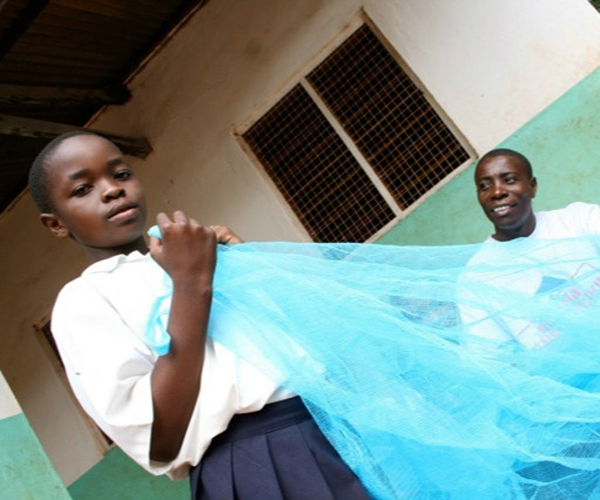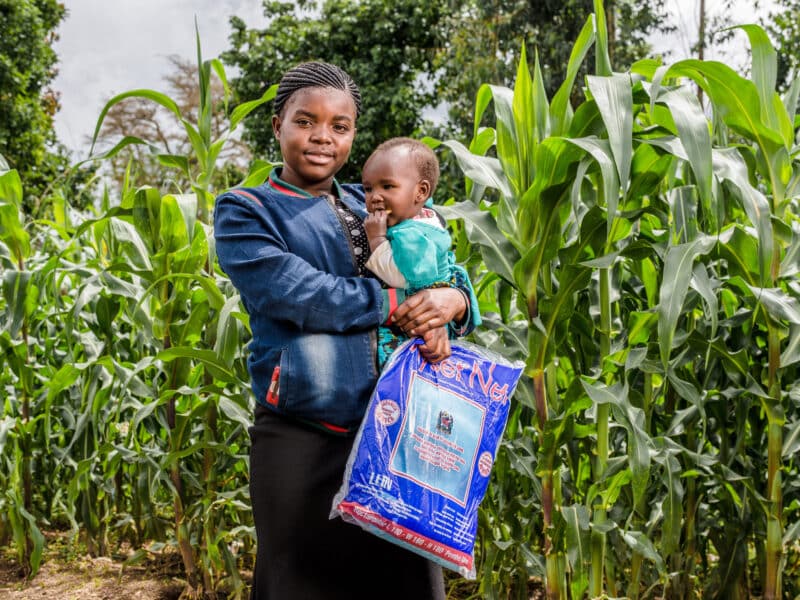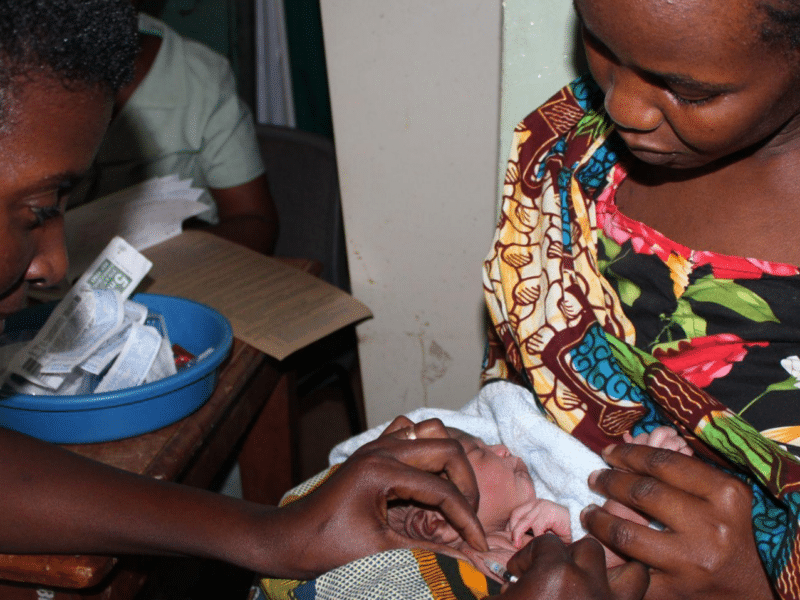The Global Program on Malaria at the Johns Hopkins Bloomberg School of Public Health’s Center for Communication Programs (CCP) received a $15 million grant to develop communication strategies to prevent and treat malaria in rural Tanzania. The award was made by the President’s Malaria Initiative (PMI) through the United States Agency for International Development (USAID). This is the first time a PMI procurement will focus on behavior change communication.
“This award builds on CCP’s global advocacy work in malaria and our strength in evidence-based, strategic communication to improve health in the developing world,” said Jane T. Bertrand, PhD, director of CCP. “Our communication strategy will focus on existing malaria product and service initiatives to ensure that Tanzanian communities, households and individuals are equipped with the knowledge and skills to take advantage of available life saving measures.“
CCP’s technical strategy will focus on those living in rural areas who are at the highest risk of death from malaria. It will promote behavior change to support the use of insecticide-treated nets, prompt treatment with Artemisinin-based Combination Therapy, intermittent preventive treatment for pregnant women, and indoor residual spraying.
“Malaria is a preventable and curable disease,” said CCP’s global malaria program director Matthew Lynch, PhD, “but the prevention and treatment tools are only going to have an impact if people actually use them.”
CCP’s Global Program on Malaria was formed in 2006 when the Center received support from the Bill & Melinda Gates Foundation for a global advocacy project called VOICES for a Malaria-Free Future. VOICES is educating policymakers about effective programs and strategies for malaria control and is working closely with malaria advocates and stakeholders around the world.
“Malaria is a global crisis afflicting half a billion people worldwide. Over 1 million die from the disease each year, many of whom are children,” said Michael J. Klag, MD, MPH, dean of the Johns Hopkins Bloomberg School of Public Health, “CCP’s communication campaign will be another tool for preventing this terrible illness in Tanzania, which has one of highest malaria transmission rates in Africa.”
Work on the five-year award will begin immediately. Partners on the project include Population Services International, JHPIEGO, and RTI International, as well as a number of Tanzanian non-governmental organizations.
With representatives in more than 30 countries, CCP partners with organizations worldwide to design and implement strategic communication programs that influence political dialogue, collective action, and individual behavior change; enhance access to information and the exchange of knowledge to improve health and health care; and conduct research to guide program design, evaluate impact, and advance knowledge and practice in health communication.





